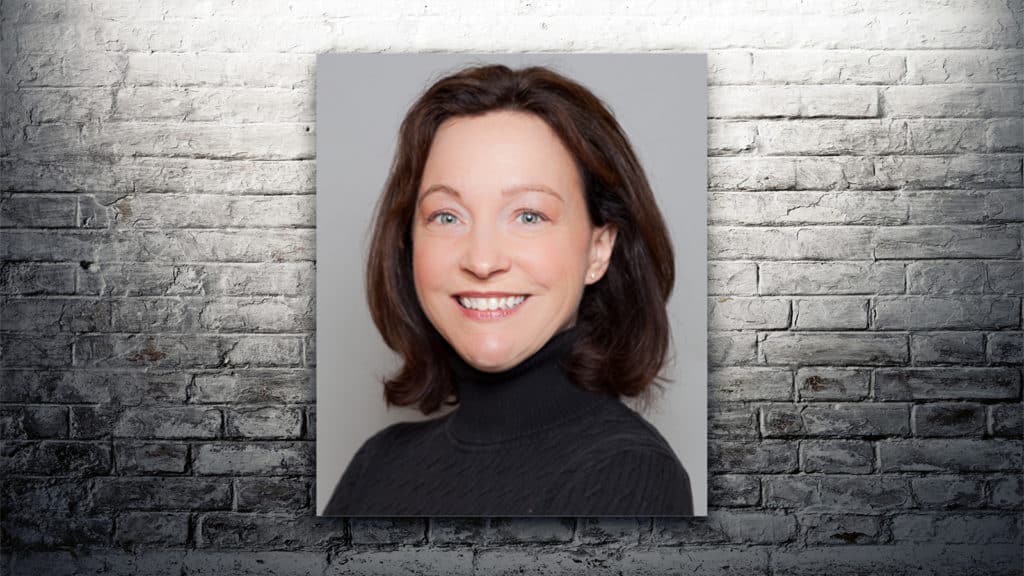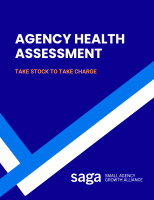Jen Phillips of 4L Strategies has graciously agreed to sit in the spotlight today and answer our questions.
She weaves the written word for clients — then stands ready to help them measure the impact of their communications.
I have had the good fortune to work with Jen for more than a decade as an employer, co-worker, and client.
In this Q&A, Jen shares her path from politics to PR agency owner.
Tell us about yourself and your agency.
I got into politics in college, as a Political Science major with a minor in US history, with a focus on Constitutional Law/Constitutional History. I thought I’d eventually go to law school, but ended up working in politics instead. After stints in campaign work, as a legislative aide, and then lobbying, I ended up in Public Affairs PR and loved it. I eventually made my way to the monitoring/measurement side of the PR equation when I joined CustomScoop. Measurement and analysis really resonated with me—I enjoy digging into the “why” behind coverage and using those answers to inform future activity. My agency is a solo practice, and I have two primary areas of focus: content writing and media measurement.
How has your agency changed over the years?
I started out thinking I would be providing traditional PR consulting, but I’ve found that what I really enjoy is writing and measurement work—the behind the scenes stuff. When people outside of the industry hear “PR” they automatically think of media relations—which I’ve never enjoyed. As a junior PR professional, nothing sapped my energy faster than being handed a media list to follow up with—I hated getting yelled at by journalists on deadline (who I had invariably interrupted from meeting said deadline when I called). It would take me forever to work through a list, because I’d have to compose myself after one of those calls. I’m sure most journalists are lovely people, but the idea of doing media outreach about gives me hives. I’m happy doing the writing, analysis, and measurement work I do now.
If you could turn back the clock 10 years and give yourself some advice, what would it be?
I’d tell myself to relax, and that things work out. I know that I’m not alone in this, as I’ve talked to other PR pros about it, but I have struggled with a combination of perfectionism and imposter syndrome for as long as I can remember. I think PR—and public affairs work in particular—feeds this combination. If you spend any time in politics you see how a small gaffe can become a major problem, and it can make you really cautious, especially if you’re working on behalf of clients who are paying you, presumably, not to make mistakes that will end up costing them money and reputation. It can be stressful, made worse if you obsess about it, which I did (and if I’m honest, to some degree still do). I’m a work in progress as we all are.
What will be your agency’s biggest challenge in the years ahead?
I’m a solo practitioner, so my agency’s challenges are specific to working on my own, as I have no plans to grow beyond being a solo. I think finding the right balance is always going to be the biggest challenge—you want enough work to keep you busy, and enough clients that losing one won’t break you. However, you also need to have enough time to be able to do the work thoughtfully and well. It can be tricky to find that precise balance.
What book would you recommend to other agency leaders and why?
I get asked this question fairly frequently because people know I’m a big reader, but I honestly find most “business books” tedious. Many could have been distilled down into a blog post or two. So, I’m going to go outside the norm and recommend reading works by Shakespeare and Jane Austen. Both were keen observers of how people think, act, and manage societal expectations—all of which informs good public relations work. And for anyone thinking of writing a business book, consider picking up Your Book Starts Here, by Mary Carroll Moore. She has great advice on writing narrative nonfiction, which will make business writing more engaging for readers.
How would you describe your leadership style?
This is likely a dreadfully common response, but I suppose I would describe my leadership style as player/coach. Meaning, I’m there to guide and advise, but ready, willing, and able to do the work myself too. It’s easier for me to lead when I know what people are going through on a daily basis, and the best way to do that is by keeping in touch with the work they are producing. In fact, the one time I struggled leading a team was when I didn’t have the expertise to jump in and do the work myself. It affected my own confidence in making recommendations, even though I had experience in the target market.
How did you first get involved in PR/marketing?
I touched on this briefly in the introduction, but I’m happy to expand on that because I think PR as an industry has struggled with pathways into the profession and what that means for professional identity. I worked in politics in Missouri for a little less than a decade when I decided that although I remained interested in politics, I didn’t want to make a career out of it. FleishmanHillard, headquartered in St. Louis, was hiring in their Public Affairs practice group, so I sent in my resume and was hired there. They wanted people who had political experience—and that was more important than a degree in public relations. I can understand why. The political process can be complex, and if you’re working on behalf of clients you need to know the process intimately in order to correctly form and structure communications around the issues, and make recommendations on strategy. This is true for many aspects of PR practice, which is why people end up in PR from all sorts of backgrounds. I think sometimes this is perceived as a weakness in the profession—that it doesn’t have a clear path with training and certifications, like a doctor or lawyer, etc. I think it is just reality. I don’t think treating it as a liability is good for the profession.
What is the biggest career mistake you ever made?
It’s one that I continue to make, but am working on it—it’s not giving myself permission to make more mistakes. Making mistakes is only bad if you don’t learn from them. The corollary to that is if you aren’t making SOME mistakes, you aren’t learning. I’m introverted and cautious by nature, and as someone who was frequently the “new kid” (we moved every 2-3 years when I was growing up), I learned to stay back and observe. That caution is fine to a certain extent, as it can keep you out of trouble. But I believe it also has held me back. Trying things and failing doesn’t mean you’re a failure—it means you tried something and it didn’t work.
How do you clear your mind when you’re not working?
I love to read, and I love to cook and bake. Both activities require paying attention, so it forces me to get outside of my own head.
What book is on your nightstand?
As noted above, I love to read so there’s rarely just one book on my nightstand! Right now, there are two. One is a novel titled Vita Nostra, by Sergey and Marina Dyachenko. It’s sort of a Russian version of Lev Grossman’s The Magicians. The other is Born to be Posthumous, by Mark Dery—that one is a biography of the author and artist Edward Gorey.
What’s the latest TV show you binge-watched?
Unsurprisingly perhaps, it’s one based on a book series—A Discovery of Witches, by Deborah Harkness has been turned into a series and is streaming on Sundance Now.
Where can people find you online?
I have a website, 4LStrategies.com, and you can also find me on Twitter as @jenzings.










